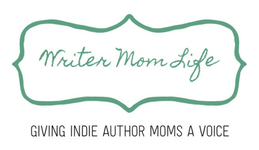Episode 26: Rhea Pechter and Self-Editing Tips
Writer Mom Life Episode 26: Rhea Pechter and Self-Editing Tips
- What building a relationship with listeners looks like
- How writing for audio is different than writing for books
- Ways her husband and family supports her
- How creating without pressure of an audience kept her motivated
- Why she thought she wouldn’t come back after her third child
- What her sons think of the podcast
Rhea’s links:
Her podcast, Little Stories for Tiny People
J. R. Frontera’s Tips and Resources
Today we talk about the most expensive part of book production for almost everyone: EDITING! And how you might be able to save some money with it while still turning out a quality, clean book.
While editing is a VERY NECESSARY step for EVERYONE on the self-editing journey (and is downright required for trad pubbed authors), it’s also one of the most expensive, after the cost of covers.
As such, some indie authors attempt to cut corners in this area, and then end up releasing lesser quality books, which doesn’t please readers very well, and can even lend weight to the (largely incorrect) stigma that self-published books are all poorly written drivel. Yipes! (Also, a novel that has blatantly not been professionally edited might garner you some pretty nasty reviews.)
BUT … if editing is so expensive, but just sticking to a self-edit isn’t good enough, how are you supposed to manage producing a nice, clean manuscript on the shoe-string budget most of us Writer Moms are operating with?
Well, firstly, as we mentioned last time on our Tips, you want to have the right mindset going into your book production as a whole. If this is just a hobby for you, then *editor-self braces herself* yes, you can usually get away well enough with just a self-edit, and save money that way. Or make do with someone you know who is grammatically inclined who can do a beta read for you as your “editor”.
However, if you’re going into this with more of a business mindset, then you need to be willing to put forth a professional budget in order to get a professional result. Even in this instance, though, there are some possible ways to keep your editing costs down.
Some things we suggest are (and these can be used whether you are writing for hobby or business):
- Enlisting the help of a grammar Nazi friend
- Using beta readers who are also writers, who know about story structure, etc
- Trading a service you’re awesome at (beta reading, website creation, book formatting, covers, or even editing) with someone else for editing your book
- Finding an editor who is just starting to build their freelance portfolio, as their prices are usually lower than established editors (but beware, in some instances this may result in a lower quality edit as well if the person is new to editing)
- Become an EXCELLENT self-editor… if you can get good enough at it, you MAY not even need another editor, just beta readers, but at the very least, it can make your professional edits cheaper because you won’t need such a deep edit!
In regards to becoming an awesome self-editor, J. R. is putting together an online workshop to help you out with that! 😉 As a freelance editor herself for going on three years now, (but she’s been editing for ten!) she’s compiled a nice little (ahem, read: large) list of “frequent mistakes” … and once you learn to see them, you’ll never un-see them! Making YOU a better self-editor!


